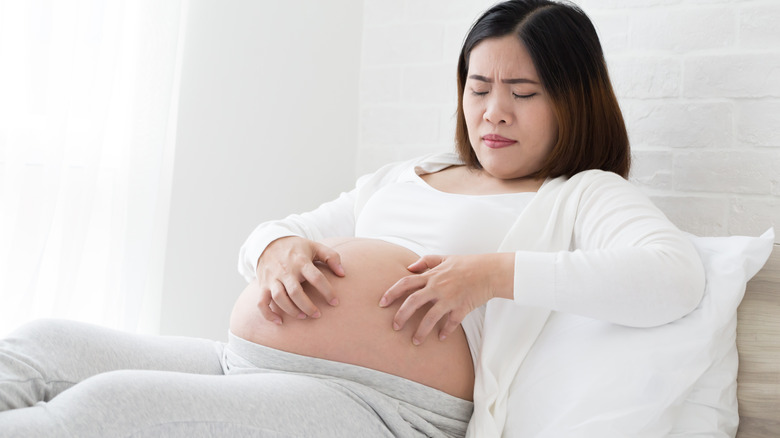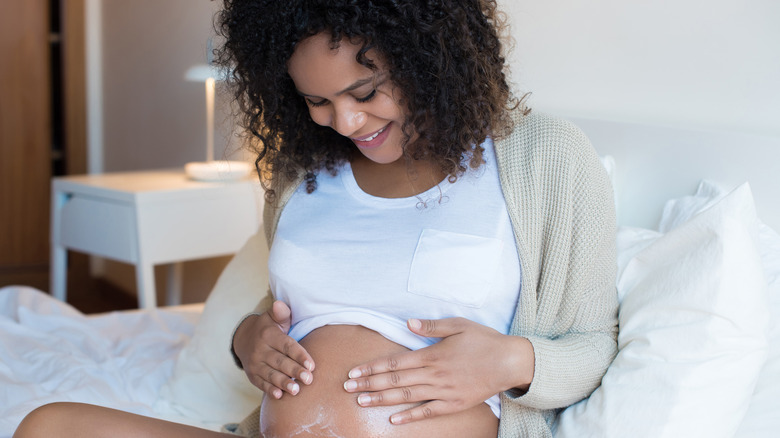What It Really Means When Your Body Itches While Pregnant
A woman's body goes through many changes during the course of a pregnancy, some more pleasant than others. Among all of the new sensations can be an intense itchiness that won't go away no matter how much you scratch. There could be a few reasons why annoying itchiness might be among a pregnant woman's top complaints.
Healthline points out that a common cause of itchiness during pregnancy is simply dry skin. Pregnancy hormones have the tendency to leave your skin devoid of moisture, leading to flakiness and an urge to scratch. If the area of itchiness is around your belly, this could be due to your skin stretching as your uterus grows to accommodate the developing fetus. Another simple reason for itchiness could just be a newfound sensitivity to certain fabrics or fragrances.
There are a few more causes of pregnancy itchiness that can be attributed to underlying conditions (via Healthline). The first is called pruritic urticarial papules and plaques of pregnancy (PUPPP), which the American Osteopathic College of Dermatology names the most common condition affecting pregnant women. You'll notice a bumpy and inflamed rash begin to develop around your stretch marks in the third trimester. One more potential reason for the itchiness could be a type of liver disease, obstetric cholestasis (OC), which is characterized by a buildup of bile in the bloodstream, per Healthline. The good news is that regardless of the cause of your itchiness, there is a way to treat it.
How to get rid of itchiness during pregnancy
The American Pregnancy Association outlines a few ways to alleviate itchiness during pregnancy. You will want to invest in a quality moisturizer if your itchiness can be attributed to dry and stretched skin. Make sure the moisturizer is free of fragrances and preservatives to minimize the risk of a secondary reaction. Another tip to reduce itchiness is to wear clothing made from natural fibers over synthetic ones and to ensure your clothes fit loosely and aren't too tight on your skin.
For more severe conditions, such as obstetric cholestasis (OC), the American Pregnancy Association recommends seeing a doctor to determine a treatment plan. Although the condition affects less than 1% of pregnant women, it can lead to complications that can put your health and the health of the fetus at risk, and it must be addressed by a health professional. You will likely receive a prescription for a drug called ursodiol to reduce the bile levels in your bloodstream and relieve feelings of itchiness, per the Mayo Clinic.
The Cleveland Clinic offers a few suggestions for treating pruritic urticarial papules and plaques of pregnancy (PUPPP). This condition is more common, affecting around 1 in 160 pregnant women. Some home remedies include taking oatmeal baths, applying a cold cloth directly on the rash, and using a fragrance-free moisturizer. In extreme cases, a doctor might prescribe a corticosteroid or antihistamine medication to reduce unpleasant symptoms.


